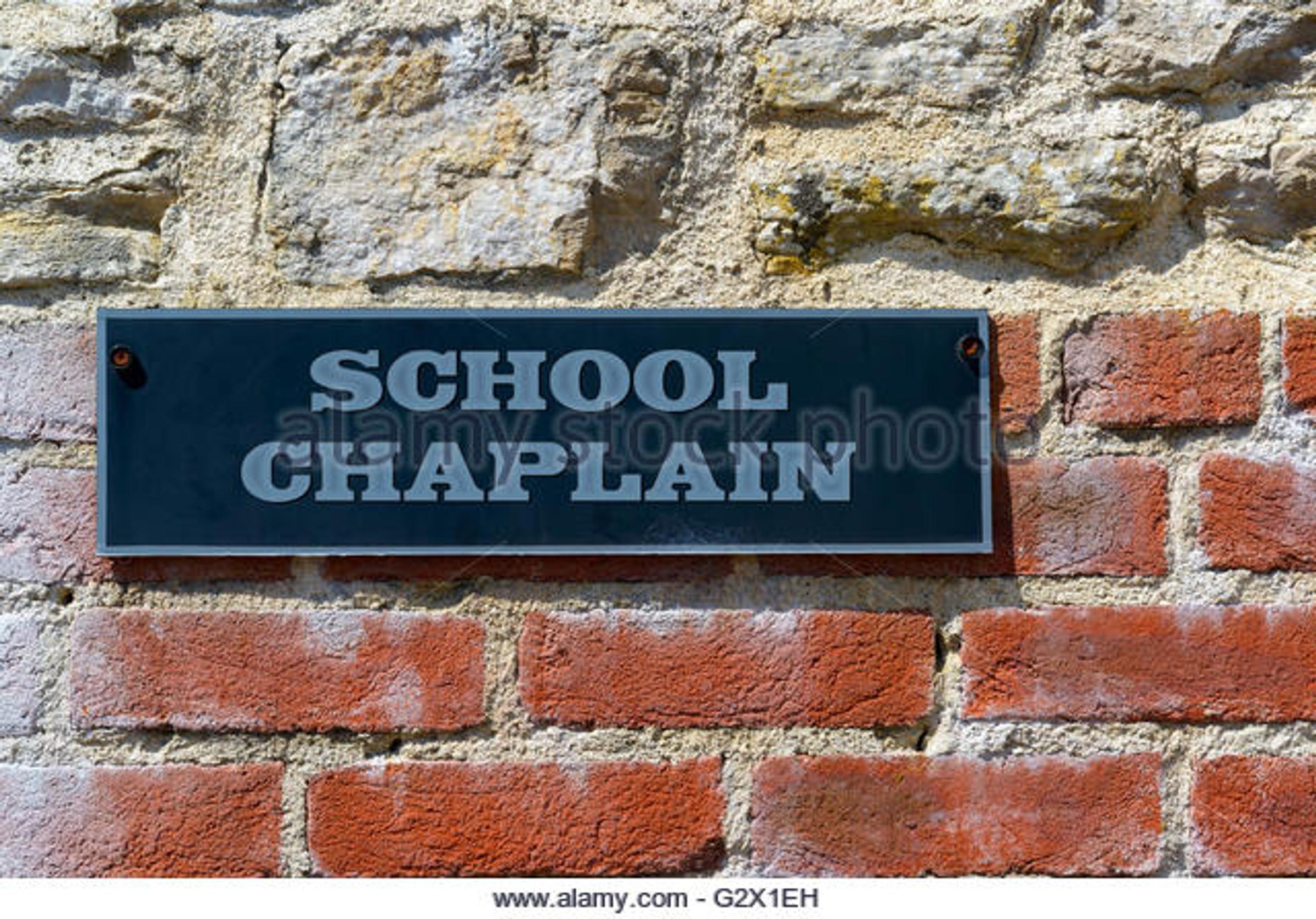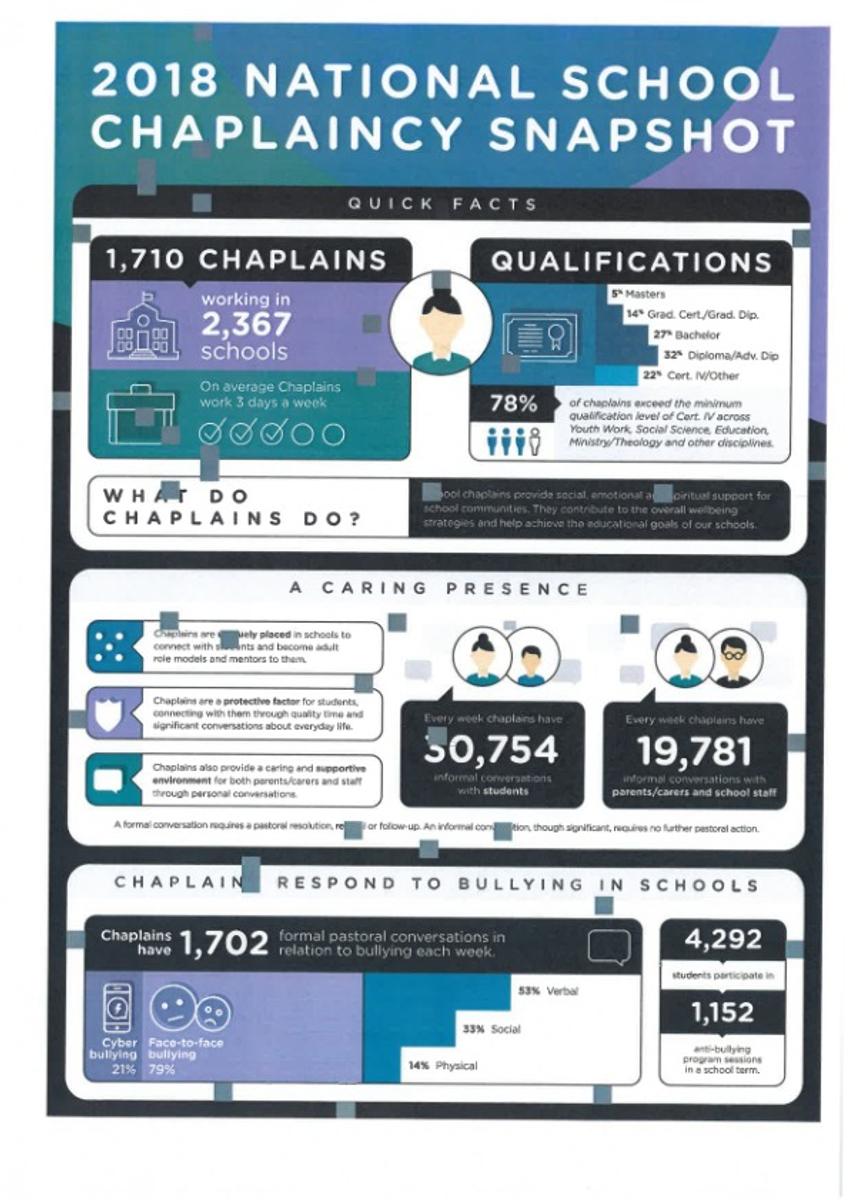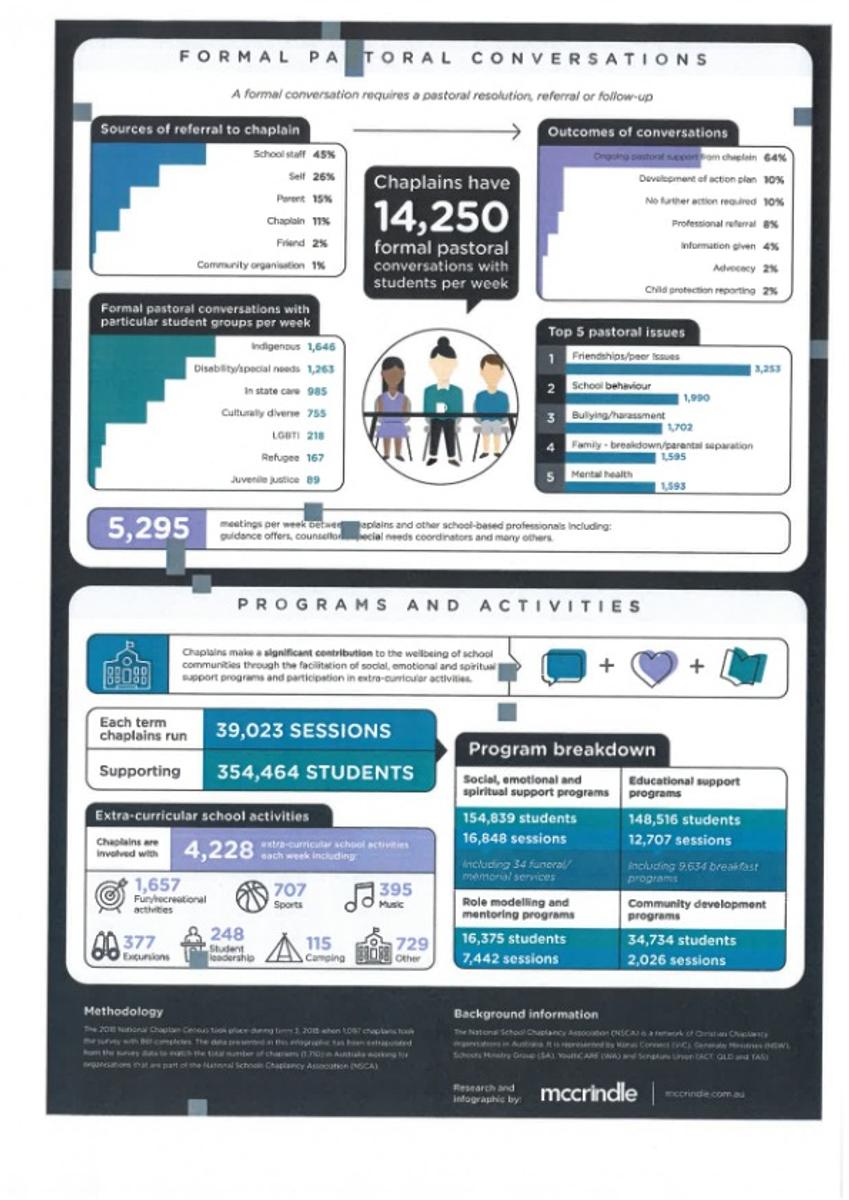From our Chaplain

School Chaplain
Matt Stear
Respectful relationships and why we need them!
Hi Everyone
In response to Junes Pastoral care needs for Loch Primary. I have compiled and adapted the following information from a variety of different resources. The main issues this month Anxiety issues relating to family breakdown. This issue is quite a chunky one and is written for no one in particular but affects adults and children outside our family home. Chances are that the following information may assist you to assist another person or family, thereby changing the outcome for an entire community, even our school community.
“Too many young people, and adults, grow up in homes in which there is too much anger. Anger and violence may be directed against a partner and/or against children. Both are problematic. Increases in anger intensity tend to develop gradually over time.
- First may come too-frequent anger with too much telling others what to do, too much insistence that someone did something wrong, too much blame for problems, too much criticism.
- Then louder yelling, name-calling, and maybe verbal abuse.
- Then escalation into harming things and eventually people (physical abuse):
Do any of these various levels of anger occur in your family?
Too many victims (men, women and children) cope by Playing down these behaviours’.
"Oh, he's just under stress." Or, "all mothers yell at and hit their kids." "If I can just do what they want me to do, the anger and violence will stop." And all too often, "Some of the times he / she is so loving.” I can't leave because I love him/her so much when s/he is being nice to me." And lastly, "What would I do without him/her?" I can't make it on my own."
If you hear yourself saying any versions of these statements to yourself, odds are that you are "in denial" about the excessive anger, which is really just calming yourself by telling yourself that the problem is not really a problem.
What can you do if there is too much anger in your family?
If the anger is coming from you, learn to exit ASAP from any situation that triggers even the beginnings of angry responses. Calm down, and then return to re-address the situation in a friendly talking voice. Look to solve the problem instead of to criticize or blame anyone.
If the anger comes from someone else in the family, exit the situation also. Change the topic, or leave the room for a few minutes. Explain that you will be glad to discuss the situation once both of you can talk calmly. Be crystal clear that you only interact in cooperative voice tones.
Anger is a stop sign! Stop to recognize that the anger is warning you that there is a problem. Do not proceed in the conversation however until the coast is clear, that is, until talking cooperatively, in quiet voices, toward the goal of solving the problem will be possible,” especially if children are present.
Physical effects of anger
Anger triggers the body’s ‘fight or flight’ response. Other emotions that trigger this response include fear, excitement and anxiety. The adrenal glands flood the body with stress hormones, such as adrenaline and cortisol. The brain shunts blood away from the gut and towards the muscles, in preparation for physical exertion. Heart rate, blood pressure and respiration increase, the body temperature rises and the skin perspires. The mind is sharpened and focused. There are also many different health problems that are caused by excessive anger which are very serious – too many to mention today in fact.
Teaching children how to express anger – This is where the rubber hits the road folks!
Expressing anger appropriately is a learned behaviour. Suggestions on helping your child to deal with strong feelings include:
- Lead by example.
- Let them know that anger is natural and should be expressed appropriately.
- Treat your child’s feelings with respect.
- Teach practical problem-solving skills.
- Encourage open and honest communication in the home.
- Allow them to express their anger in appropriate ways.
- Explain the difference between aggression and anger.
- Have consequences for aggression or violence, but not appropriately expressed anger.
- Teach your child different ways of calming and soothing themselves.
The important role that schools and early childhood settings can play in long-term prevention of family violence was highlighted in the Victorian Royal Commission into Family Violence.
The Royal Commission heard a range of evidence from experts in the field that made clear that for there to be a reduction in rates of violence (family violence can be sexual
Psychological, emotional, economic, spiritual and cultural abuse), that the long-term, attitudes and behaviours must change, and school-based programs and culture (this also includes our family cultures) can drive this change for young people.
In Summary
Essentially you can see that angry homes create anxious people, both adults and children alike, this topic affects us all in a variety of unhealthy ways that for our kids, eventually finds its way out at school which is not just embarrassing for them, it can be for mums and dads as well.
When we respect ourselves we can more easily respect each other and this too will show in the lives of our children here at school.
Next month I will look at ways to help us create a healthy family culture without impacting on our uniqueness - creating family cultures that we can be proud of.
Thanks for reading – Matt Stear
Resource locations used in this article came from:


